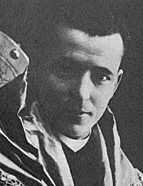

Fernando Falcão Machado’s 1927 book entitled História de Portugal. Súmula das lições magistrais de História de Portugal (1.º ano) pelo Ex.mo Professor, Senhor Doutor Manuel Gonçalves Cerejeira, no ano lectivo de 1927-1928, na Faculdade de Letras da Universidade de Coimbra [History of Portugal. Summary of the Lectures on the History of Portugal (1 st year) by the Honourable Professor, Dr. Manuel Gonçalves Cerejeira, in the 1927-1928 Academic Year, at the Faculdade de Letras da Universidade de Coimbra [School of Arts and Humanities of the University of Coimbra] about which there is no note that it was rejected by Cerejeira and whose first biographer included it in his bibliography, allows access to some of the most prominent elements of his historiographical thinking, in line with the perspectives he supported in his own works.
Firstly, with regard to the epistemological status of History and its methodology. Rejecting it as a “science”, he fought for it to be “elaborated by scientific processes”, showing himself to be methodologically close to the then hegemonic positivist principles, for the primacy of facts, which should show “the living, real image” in the aggregate of their “circumstances and conditions” ( História de Portugal , p. 5). The quest for objectivity through factuality is evident in the conditions for drawing up a “scientific History of Portugal”: objective – “the more faithful the image of the facts”; documentary – since the documents would support a more “truthful” interpretation, freed from the historian’s “bias”; Portuguese – not “patriotic, like that of German Romanticism”, but seeking to “revive the soul of Portugal, without leaving the realms of facts”; peninsular – criticising the analytical isolationism that hinders the discovery of national characteristics, which can only be done “by the comparative method”; European – placing “in place and time” the influence of “foreign” ideas, currents and facts and the “political situation of Europe” ( História de Portugal , pp. 6-10). In the light of these principles, he evaluates the general histories of Portugal that existed at the time: Refraining from considering Fortunato de Almeida’s work, as its publication had not been finalised, he gave a positive appraisal to Herculano’s, which was written “according to the postulates that should be taken into account when writing a scientific history”. He would accompany this author in his rejection of Ourique’s miraculous interpretation in a conference given in Cádiz in 1927. Conversely, he distanced himself from Oliveira Martins, turning to António Sérgio, to whom he attributed the best assessment of that author, whose work he considered “subjective and insufficiently documented”, the result of a “particular conception”. Regarding Pinheiro Chagas, whose work he considered more objective than that of Oliveira Martins, he criticised the “lack of documentation” and, above all, the “great defect of isolating himself from Spain”. In short, he supports the need to give historiography greater analytical breadth in line with “modern” demands that broaden the “history of the State, making it sociological”, as opposed to “literary history”, a vehicle for prejudices that would lead to anachronistic, “apologetic and political” analyses ( História de Portugal , p. 11).
This work is financed by national funds through FCT - Foundation for Science and Technology, I.P, in the scope of the projects UIDB/04311/2020 and UIDP/04311/2020.
